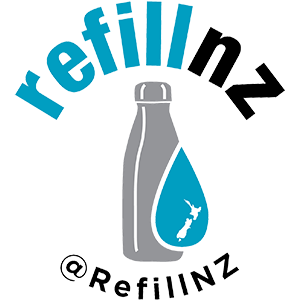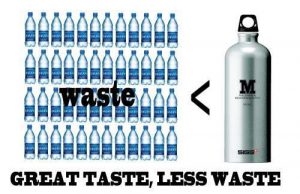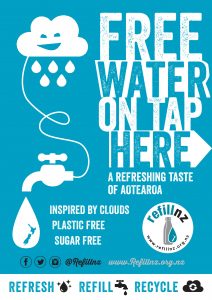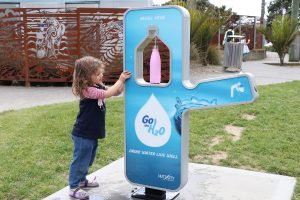Five reasons for you to Refill
By 2050 plastic will outweigh fish in our oceans and Kiwis are contributing to this massive plastic problem by throwing away more plastic than we recycle.
But we can solve this plastic problem if we’re willing to.
1. Prevent plastic pollution at source
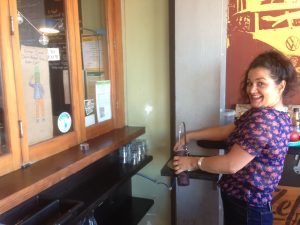
RefillNZ offers a free and easy solution for preventing plastic pollution from single-use bottles by making it easy to find free water on tap.
An estimated 828 million single-use plastic bottles are thrown away per year in NZ, (that’s about 168 per head, 3 a week per kiwi) = 165 Olympic swimming pools
If we each refilled 1 in 3 times, we’d save around 257 million plastic bottles a year.
So remember to take your reusable bottle with you and refill.
2.Protect the environment
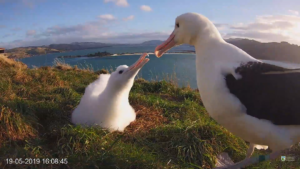
Plastic bottles now make up one-third of all plastic pollution in the sea.
The impact on our wildlife is becoming catastrophic – 100,000 marine mammals and turtles and one million seabirds are killed by plastic pollution annually.
3. Help combat climate change
It’s been estimated that plastic production and the incineration of plastic waste will give rise globally to approximately 400 million tonnes of CO2 a year, with bottled water being 900 times more carbon intensive than drinking tap water.
It takes over eight litres of water to produce a single bottle.
4. Save money
Refilling your reusable bottle is an easy way to save money, because bottled water costs between 500 to 1,000 times more than water from the tap.
Globally, the bottled water industry is expected to be worth $215.12 billion by 2025. That’s no surprise when you consider that we are each buying around three bottles a week every year.
5. Better water quality
In NZ, we’re lucky to have some of the highest quality drinking water in the world, and often it’s natural spring water.
However, many people still drink bottled water because they believe it not only tastes better, but is better and safer than tap water. In reality, tap water is often more tightly regulated.
Shockingly, a recent global study of bottled water brands found tiny plastic particles (microplastics) in over 90 percent of samples. That’s alarming enough to make anyone reach for their reusable bottle and start refilling.
Together, we have the power to reach, influence and drive change to prevent plastic pollution at source.
References:
- RECOUP (RECycling of Used Plastics Limited) cited in: House of Commons, ‘Plastic bottles: Turning Back the Plastic Tide’ – Source: https://publications.parliament.uk/pa/cm201719/cmselect/cmenvaud/339/33905.htm
- Grand View Research, Inc https://www.grandviewresearch.com/press-release/global-bottled-water-market
- https://www.theguardian.com/commentisfree/2018/jan/28/bottled-water-is-a-nonsense-fill-our-towns-with-drinking-fountains
- World Economic Forum, Ellen MacArthur Foundation and McKinsey & Company, ‘The New Plastics Economy — Rethinking the future of plastics’ (2016) http://www3.weforum.org/docs/WEF_The_New_Plastics_Economy.pdf
- Seas at Risk, Single-use Plastics and the Marine Environment: https://seas-at-risk.org/images/pdf/publications/SeasAtRiskSummarysingleUseplasticandthemarineenvironment.compressed.pdf
- https://www.telegraph.co.uk/news/health/news/9775158/Bottled-water-not-as-safe-as-tap-variety.html
- http://news.bbc.co.uk/1/shared/bsp/hi/pdfs/14_03_13_finalbottled.pdf
